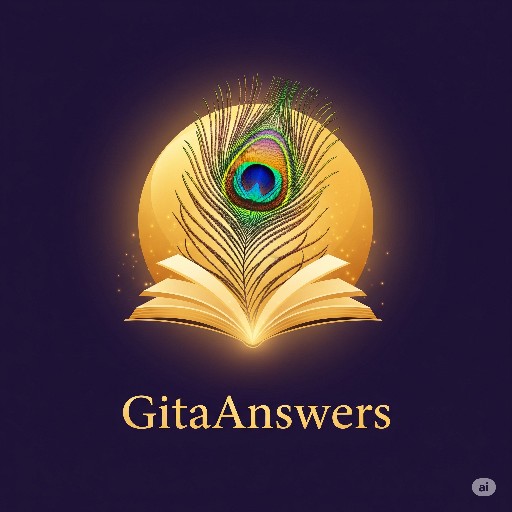🌿 Let’s Begin Here
It’s so human to feel anger rise strongest where love runs deepest. When those we cherish the most touch a tender part of us—our hopes, our vulnerabilities, our expectations—that’s when the fire often flares. You’re not alone in this struggle; many hearts wrestle with why anger visits home, where it hurts the most. Let’s gently explore this together, with kindness and understanding.
🕉️ Timeless Words
सन्तापं त्यजेत् कामं क्रोधं च महाबलम्।
इन्द्रियार्थेषु वैराग्यं स बुद्धिमान् मनुष्यः॥
(Chapter 2, Verse 56)
“A wise person, endowed with understanding, abandons all pains born of desire and anger, which are very strong and hard to overcome, and attains true detachment in relation to the objects of the senses.”
This verse reminds us that anger is a powerful force born from our desires and attachments. When we cling tightly, especially to those we love, any disturbance can ignite anger. True wisdom lies in gently releasing that grip, finding peace beyond the pull of ego and expectation.
🪬 Guiding Lights
- Anger often masks deeper pain or fear — it’s a protective shield when we feel vulnerable or misunderstood.
- Attachment breeds expectation, and expectation can lead to disappointment. When loved ones don’t meet the image we hold, anger surfaces.
- Self-awareness is the first step: noticing anger as it arises allows us to pause before reacting.
- See your loved ones as reflections, not enemies: their actions may trigger you, but they don’t define your inner peace.
- Practice compassion — for yourself and others: everyone is imperfect and learning, just like you.
🌊 Inner Dialogues
You might be telling yourself, “Why do I lose control with those I care about? Am I a bad person for feeling this way?” It’s okay to feel this confusion and frustration. Your anger does not make you unlovable or weak—it’s a sign of your deep investment in these relationships. Beneath the anger, there’s a heart longing for connection and understanding. Let that truth soften your self-judgment.
📿 What He Would Say...
“My dear friend, anger is like a storm that arises when the winds of attachment and expectation blow fiercely. But remember, the ocean beneath remains calm and vast, untouched by passing waves. When you feel anger towards those you love, pause and breathe deeply. See the anger not as your enemy, but as a messenger revealing where your heart is tender. Embrace that tenderness with patience and love — both for yourself and for others. In this way, you will find a strength that anger cannot shake.”
— Krishna
🌱 A Familiar Story
Imagine a student who works hard to please their parents, hoping for approval and love. When a small mistake happens, the parents’ disappointment feels like a thunderstorm, and the student reacts with frustration or anger. The anger is not truly about the mistake, but about the fear of losing love or approval. Just like this student, when we feel anger towards loved ones, it often hides our deepest fears and desires. Understanding this can open a path to gentler, more honest conversations.
✨ Just One Step Today
When you feel anger rising, take a slow, deep breath and silently say to yourself: “This feeling is not who I am; it is passing.” Let this simple pause create space between impulse and action.
🧘 Pause the Scroll
- What is the deeper feeling beneath my anger right now?
- How might I hold my loved ones with more compassion, including myself?
📢 Whisper to Share
"In the heart’s quiet space, anger softens into understanding — and love blooms anew."
🌼 This Moment Forward
May your heart find the gentle strength to meet anger not as a foe, but as a guide. You are not alone in this journey—love, patience, and peace are always within reach. Walk softly with yourself today, knowing every step is sacred and every breath a blessing.
